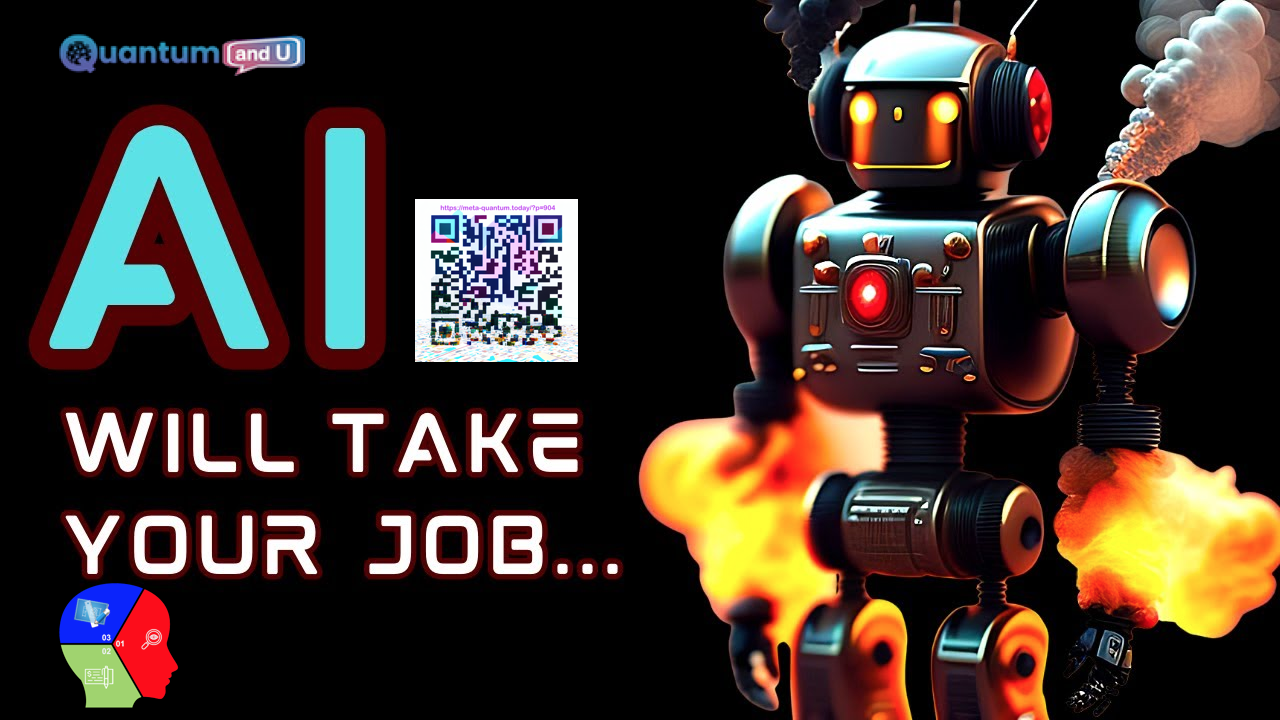
Introduction:
The YouTube video in question offers an in-depth analysis of AI’s significant influence on diverse industries and professions. AI’s extraordinary capabilities could supplant a substantial portion of work across various sectors. The video denotes the top 10 industries poised for revolution by AI by 2024, stemming from current trends and forecasts. The presenter adeptly showcases AI’s disruptive strength and burgeoning aptitude in substituting human assignments. The video emphasizes AI’s potential to revamp industry operations, enhancing efficiency, cost-effectiveness, and productivity. AI’s capacity for industry transformation is vast. The video delves into this via multiple case studies, discussing AI’s role in improving workflows, automating tasks, and enhancing efficiency, thereby heralding industries into a new epoch of technological advancement. The video also addresses the critical concern of potential job losses due to AI. It suggests potential solutions such as re-skilling and up-skilling workers to acclimate to this new technological era. It underscores that despite AI’s capabilities, human intervention and decision-making are indispensable in many sectors, as AI cannot completely replicate human emotions, intuition, and creativity. In conclusion, this transformative YouTube video presents an exhaustive examination of AI’s potential impact and transformative power on diverse sectors. It also explores the top 10 industries forecasted to be disrupted by AI by 2024, making it essential viewing for those intrigued by AI progression and its workforce and industry implications.
Related Sections:
- Construction Industry:
The construction industry, responsible for shaping cities and nations, is facing significant disruption due to the integration of AI technologies. AI is expected to revolutionize project management, design, and construction processes, leading to potential job displacement among manual laborers as autonomous machines and on-site robotics take over certain tasks. - Transport and Logistics Industry:
AI-driven technologies have streamlined logistics and supply chain functions, increasing efficiency in the transport industry. Self-driving vehicles, including trucks, are anticipated to become dominant, potentially replacing a significant number of transportation workers. - Customer Service:
AI-powered chatbots and virtual assistants are automating routine customer inquiries and support services, reducing the need for human customer service representatives. - Retail Industry:
The rise of e-commerce and AI-driven technologies is reshaping the retail industry, leading to job losses in traditional brick-and-mortar establishments. AI is being utilized for automated inventory management, personalized recommendations, and cashier-less checkout systems. - Financial Industry:
AI’s integration into the financial industry is rendering many traditional finance jobs obsolete. The combination of machine intelligence and human expertise is seen as a promising approach for delivering comprehensive and personalized financial advisory services. - Editing and Proofreading:
AI-powered tools like Grammarly have impacted the editing and proofreading industry by making it easier to identify and correct writing errors, improving the quality and accuracy of written content. - Fast Food Industry:
Advancements in technology and automation are transforming the fast food industry, with self-service kiosks, mobile apps, and kitchen automation systems being increasingly utilized to improve efficiency and food quality. - Manufacturing Industry:
The manufacturing industry is a pioneer in integrating AI-driven robotics for product assembly and packaging, leading to increased efficiency and production output. However, this has resulted in job losses due to automation. - Accounting Industry:
AI and automation are streamlining tasks in the accounting and bookkeeping industry, such as data entry, invoice processing, and payroll management. - Legal Research Industry:
AI-powered legal research tools are revolutionizing the legal profession by automating the extraction and analysis of legal information, providing greater speed, efficiency, and accuracy in research.
Conclusion:
The video highlights the imminent impact of AI on various industries, leading to job displacement and a significant shift in the workforce landscape. As AI technologies continue to advance, it is crucial for individuals and industries to adapt, upskill, and explore new opportunities to thrive in the evolving job market.
Key Takeaway Points:
- AI is expected to replace jobs in several industries, leading to job displacement in certain sectors.
- Traditional industries like construction, transport, and retail are among the most susceptible to AI disruption.
- The financial industry is leveraging AI to enhance customer experiences and improve financial advisory services.
- AI-powered tools are reshaping tasks in fields such as editing, accounting, and legal research, increasing efficiency and accuracy.
- The future workforce needs to prepare for AI-driven changes by adapting skills and exploring new opportunities.


